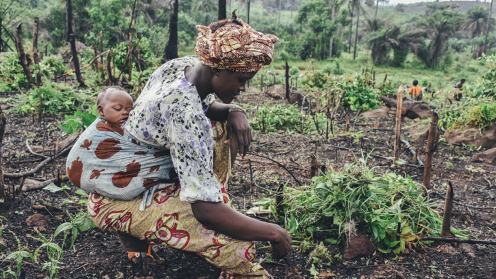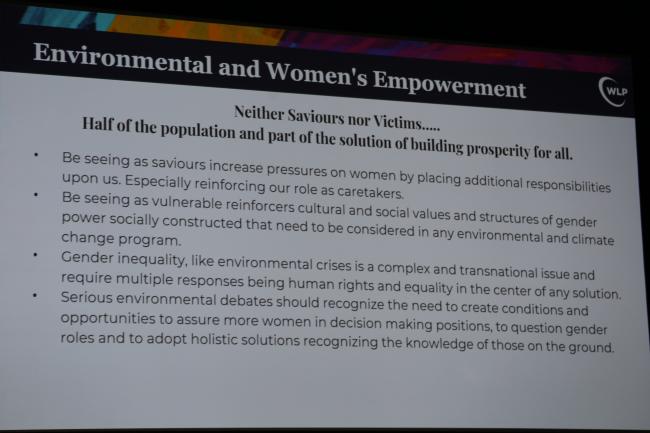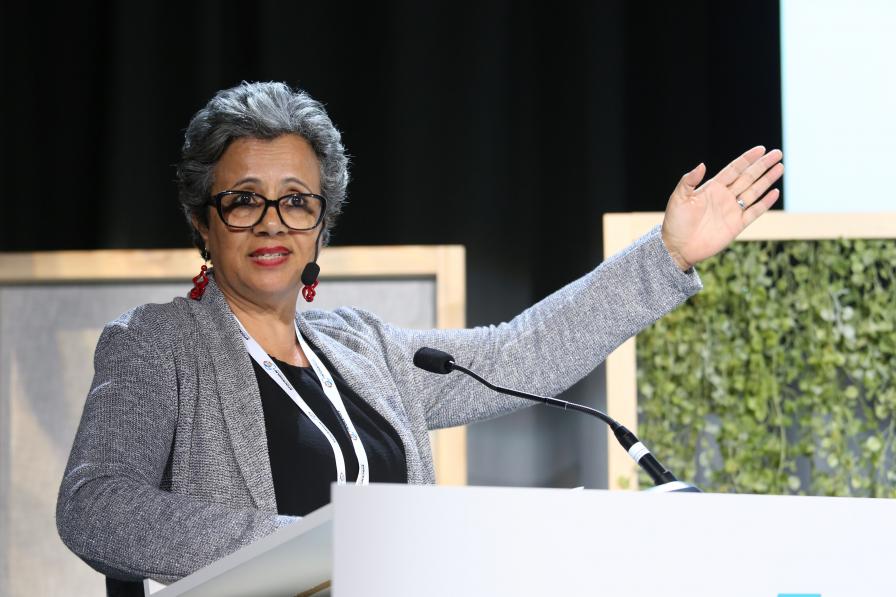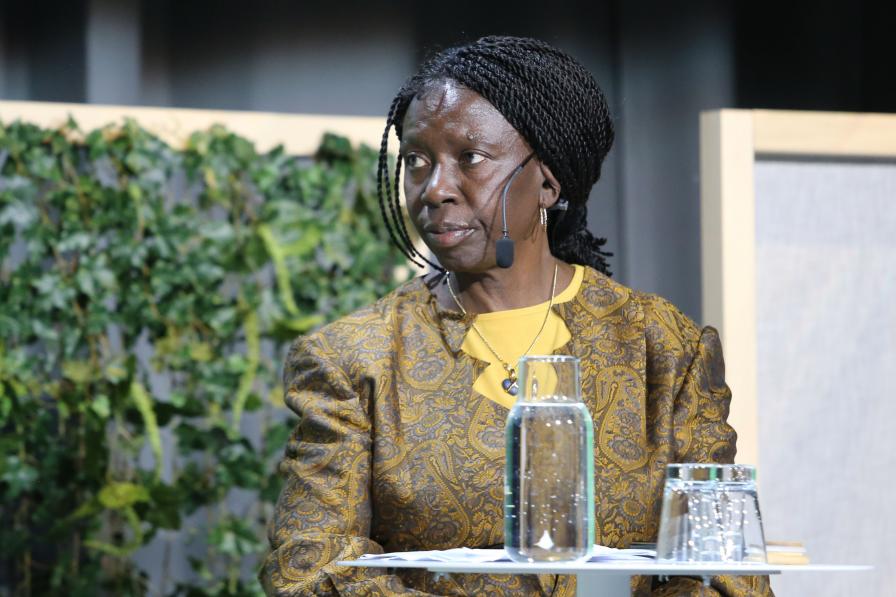About
Stories of women's resilience in the face of environmental pressure pointed toward scalable actions that could advance gender equality and climate change resilience.
Organized by: Women’s Learning Partnership for Rights, Development, and Peace; L'Association Démocratique des Femmes du Maroc; Cidadania, Estudo, Pesquisa, Informação e Ação; and Groupe d'Initiatives pour le Progrès Social/West Africa Region
This event highlighted the ways in which women are leading initiatives to combat climate change, advocating for legislation to protect natural resources, and mobilizing to call for climate justice. Examples presented included work by Indigenous women in Morocco to secure land rights, women in Brazil to protect the resources of the Amazon and create healthy communities in urban spaces, and women in Senegal to influence regional climate and land policies.
Moderator Musimbi Kanyoro, Women's Learning Partnership, explained that the groups represented in the discussion belong to the Women’s Learning Partnership, a global partnership of autonomous organizations that have a shared vision of a just, peaceful, and equitable society. She said the Partnership enables capacity building to empower women, and allows them to contextualize their challenges and find suitable solutions. Speakers emphasized the importance of capacity building and including women in decision-making processes.
Andrea Romani, Cidadania, Estudo, Pesquisa, Informação e Ação, focused on projects in Brazil and stressed that we need to have: transnational commitments; a diversity of voices and knowledge; a local to global approach; and gender equality at the center. She traced the inclusion of “gender” in decisions, reminding them that the outcome of the original Stockholm Conference did not reference women. Noting that environmental crises do not impact humankind in the same way, she emphasized the need to increase women’s participation in key decision-making spaces, adopt an intersectional approach to any debate about climate justice and gender, and ensure that a significant percentage of electoral funds are available for female candidates. She also stressed the need to create the conditions and opportunities to ensure more women in decision-making positions at all levels, and to question gender roles and adopt holistic solutions that recognize the knowledge of those on the ground.
Nezha Belkachla, L'Association Démocratique des Femmes du Maroc, noted that “climate change is a manmade problem that requires a feminist solution.” She described work with “Women of Collective Lands,” which involved a participatory approach to support the launch of advocacy campaigns and delivered outcomes that enshrined equality between men and women. While noting that work remains to be done, she said Women of Collective Lands can now lead their own advocacy work.
Julie Cisse, Groupe d'Initiatives pour le Progrès Social/West Africa Region, discussed ways in which women have been on the front line of climate change in her region. She noted that desertification has aggravated the situation and said problems with agriculture and crops have been disastrous. She discussed successful projects to advocate for land, including a decision that led to land redistribution. Among other activities, she noted efforts to reduce erosion through the use of stones, as well as the creation of small dams to catch water. She also discussed work to plant trees and increase plants and stressed the importance of capacity building.
In conclusion, moderator Kanyoro noted that the examples presented were at scale as they apply to policies and laws that impact more than the place where the project is. She asked each speaker to summarize what they would like to see happen more in their respective countries. Romani said she would like to see the Constitution respected, and norms and practices that perpetuate violence against women questioned. Belkachla said discriminatory laws should be reformed, the patriarchal mindset should be changed, and new voices should be heard in the public and private spheres. Cisse said there should be economic empowerment for women and respect for commitments.
Contact:
Tori Pell | tpell@learningpartnership.org
More information:
To receive free coverage of global environmental events delivered to your inbox, subscribe to the ENB Update newsletter.
All ENB photos are free to use with attribution. For photos of side events during Stockholm+50, please use: Photo by IISD/ENB | Angeles Estrada Vigil




